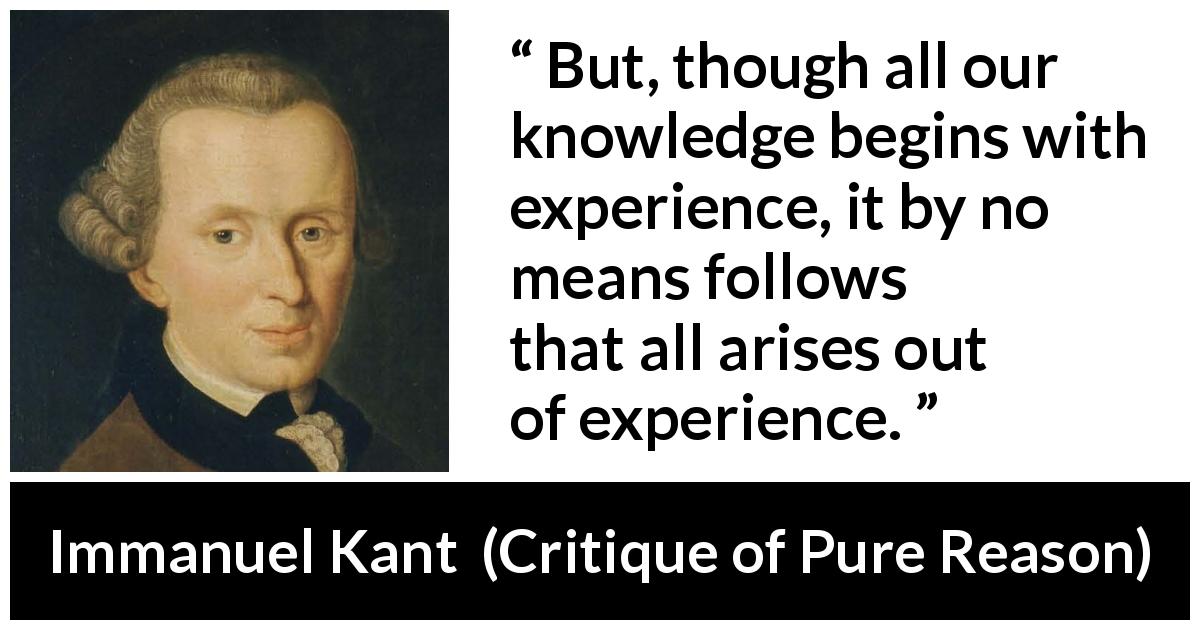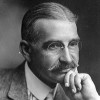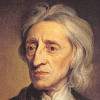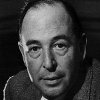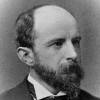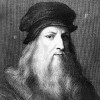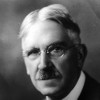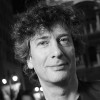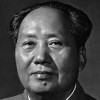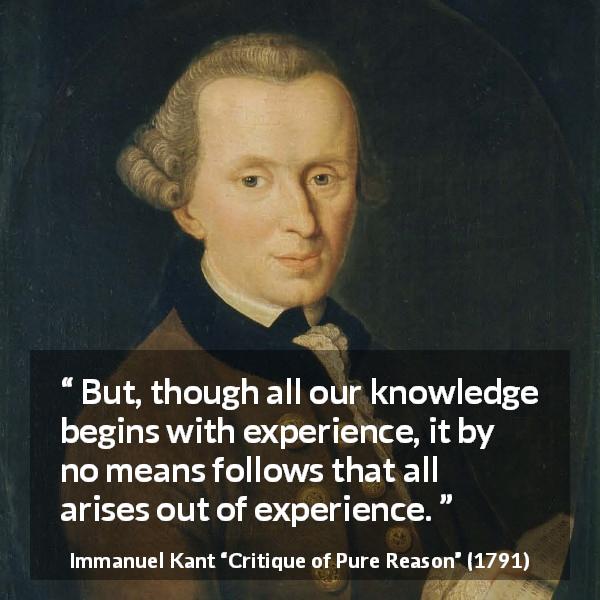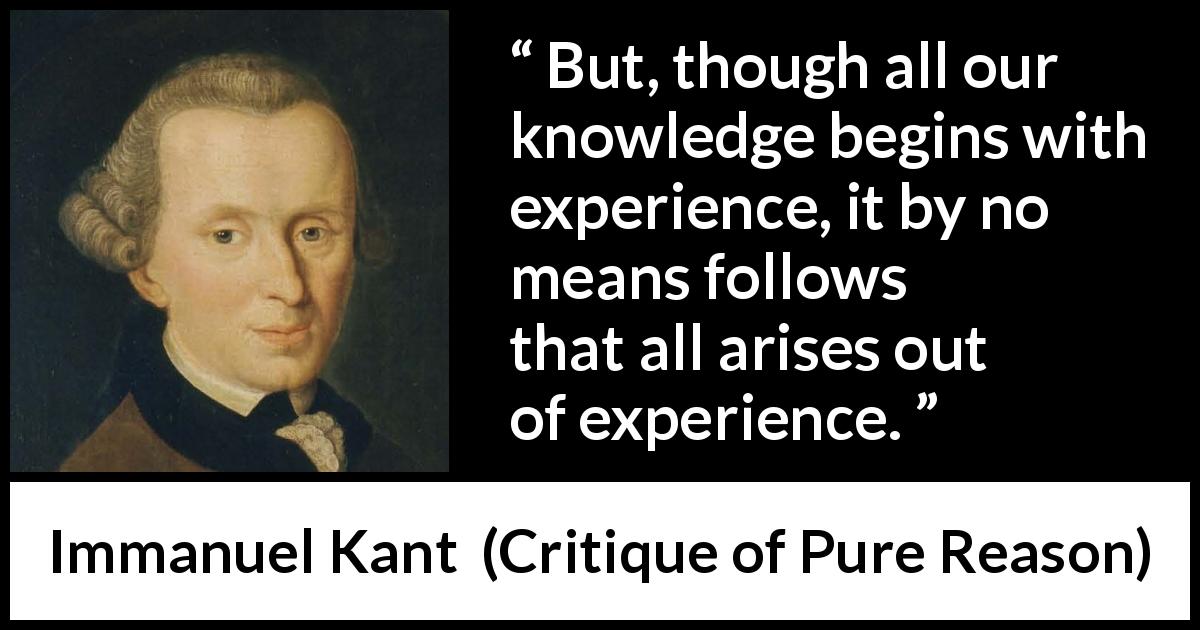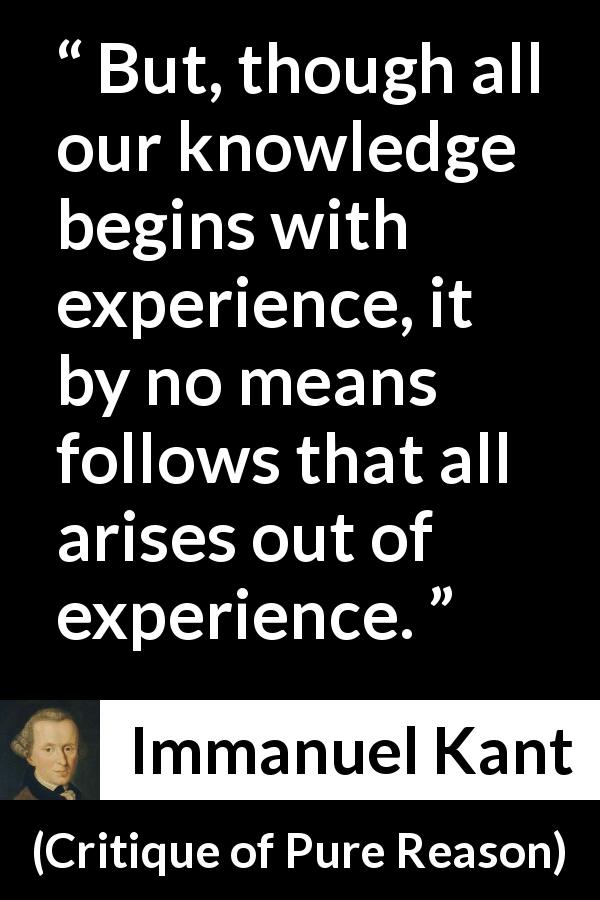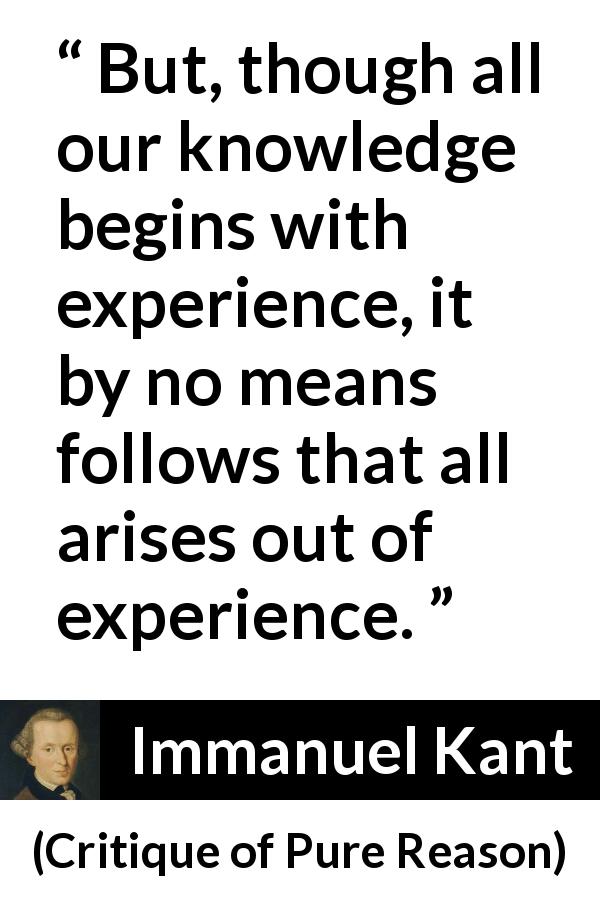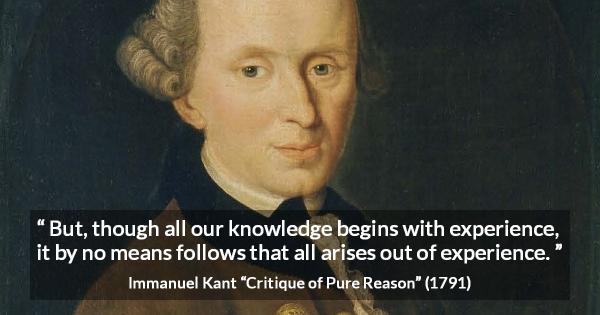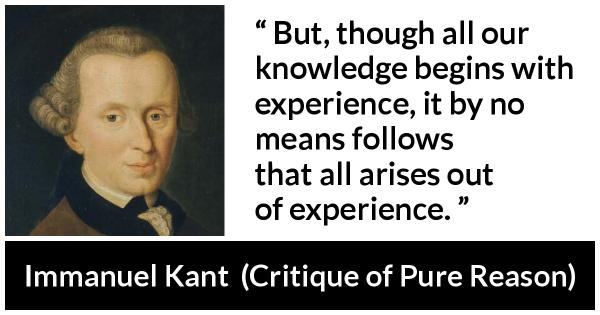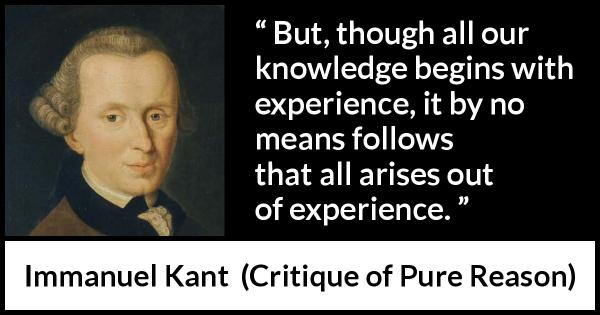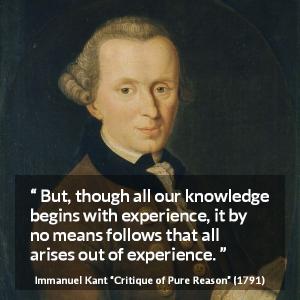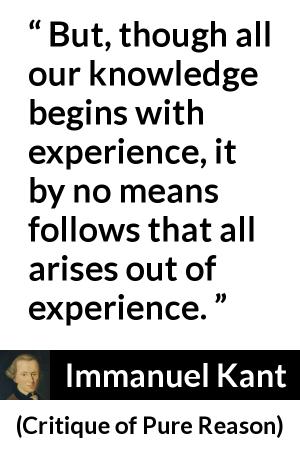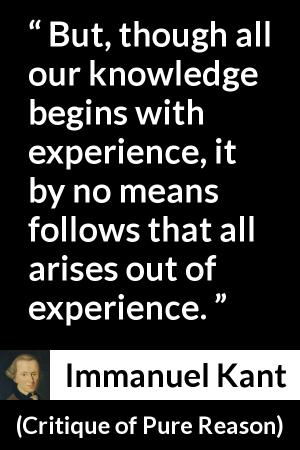“ But, though all our knowledge begins with experience, it by no means follows that all arises out of experience. ”
Immanuel Kant, Critique of Pure Reason (1791). copy citation
| Author | Immanuel Kant |
|---|---|
| Source | Critique of Pure Reason |
| Topic | knowledge experience |
| Date | 1791 |
| Language | English |
| Reference | |
| Note | Translated by J. M. D. Meiklejohn |
| Weblink | http://www.gutenberg.org/files/4280/4280-h/4280-h.htm |
Context
“For how is it possible that the faculty of cognition should be awakened into exercise otherwise than by means of objects which affect our senses, and partly of themselves produce representations, partly rouse our powers of understanding into activity, to compare to connect, or to separate these, and so to convert the raw material of our sensuous impressions into a knowledge of objects, which is called experience? In respect of time, therefore, no knowledge of ours is antecedent to experience, but begins with it.
But, though all our knowledge begins with experience, it by no means follows that all arises out of experience. For, on the contrary, it is quite possible that our empirical knowledge is a compound of that which we receive through impressions, and that which the faculty of cognition supplies from itself (sensuous impressions giving merely the occasion), an addition which we cannot distinguish from the original element given by sense, till long practice has made us attentive to, and skilful in separating it.” source
But, though all our knowledge begins with experience, it by no means follows that all arises out of experience. For, on the contrary, it is quite possible that our empirical knowledge is a compound of that which we receive through impressions, and that which the faculty of cognition supplies from itself (sensuous impressions giving merely the occasion), an addition which we cannot distinguish from the original element given by sense, till long practice has made us attentive to, and skilful in separating it.” source
